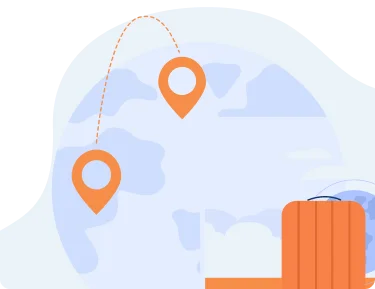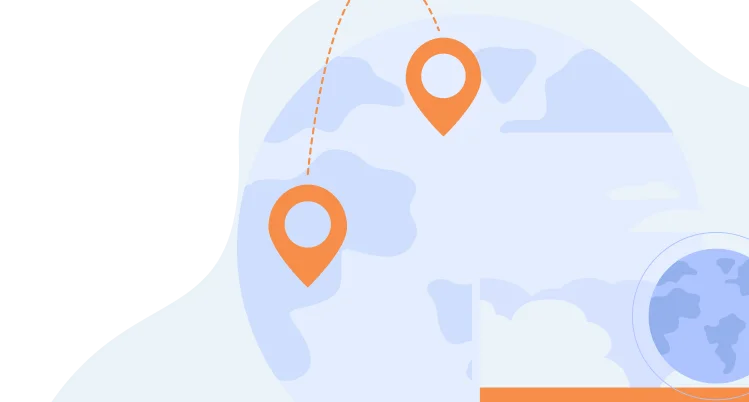How is the education system in Greece organized?

- How is the educational system in Greece organized?
- How is the educational process and types of educational institutions in Greece organized?
- Which international schools offer studies in Athens?
The general structure of education in Greece
The education system in Greece comprises three main levels: primary, secondary and higher education. Each of these levels is divided into two sub-levels. All children residing in the country, regardless of their nationality, are obliged to go through elementary school and complete the first level of secondary education. Education in public educational institutions at these stages is absolutely free of charge.
Primary education and kindergarten
Primary education begins with kindergarten, which accepts children as young as 2.5 years old. Although attending kindergarten is not compulsory, many parents choose to enroll their children in such institutions. This not only allows parents to work, but also helps children develop their initial skills in learning activities and interaction with other children. Most often, children start attending kindergartens two years before they enter school, which corresponds to ages 4 to 6.
Documents for kindergarten registration
In order to register a child at a day care center, parents need to gather a certain set of documents. These include:
- a written application for admission;
- birth certificate;
- medical certificate with information on immunizations;
- dental report;
- proof of residence or registration.
All paperwork provided must be translated into Greek.
Elementary school
The next stage of the educational system is elementary school, which lasts for six years. In order to enroll a child in this school it is also necessary to prepare a similar set of documents, to which a certificate of kindergarten attendance is added. Acceptance of documents takes place from June 1 to June 21.
Extracurricular activities
The school offers a number of additional extracurricular activities for children after school hours. These may include sports, music and foreign language lessons, or theater classes. For children who are foreigners, there are special classes for 9 to 17 students, with an emphasis on learning Greek.
At the same time, these children can attend other classes where Greek is not required. The main purpose of this approach is to help children adapt more easily to the learning process. If there are not enough foreign students to form a group, schools offer additional Greek classes, which can last up to 10 hours per week.
Assessment in elementary school
During the first two years of schooling, there is no grading in the classroom. From the 3rd and 4th grades pupils begin to be graded according to the system:а(“excellent”),b(“very good”),c(“good”) andd(“almost good”). Starting from grade 5, a ten-point system is applied, where 10 and 9 points are “excellent”, 7 and 8 are “very good”, 5 and 6 are “good”, and 1-4 are “almost good”.
Secondary education
Secondary education in Greece is divided into two sublevels: general secondary education, which implies gymnasiums, and complete secondary education, which includes lyceums or vocational schools. This division allows each student to choose the most appropriate direction for further education or preparation for a profession, which opens up new horizons and opportunities for their growth.
Goals of the education system
Ultimately, the Greek education system aims to create conditions for the successful integration of all students, regardless of their initial level of knowledge and skills, contributing to a more harmonious development of their personality.
Educational process and structure
The educational process in educational institutions is carried out for three years for all levels, and this period increases to four years if evening schooling is chosen. The transition to secondary school is usually smooth, but if the family changes residence, parents must provide the new school with proof of primary education and the new address or registration.
Types of secondary education institutions
There are a number of categories of secondary schools:
- Religious schools
- Sports training institutions
- Music institutions
- Specialized schools for children with disabilities
Evening schools for adults who have a desire to complete their education without having done so at a young age should not be overlooked. Despite taking classes during the day, teenagers over the age of fourteen can attend evening classes, which are held every day and last from four to five hours.
Evaluation system
The grading system in secondary education is based on a twenty-point scale. In order to advance to the next level, a student must obtain a minimum of ten points.
After completing upper secondary school, students receive a certificate, which opens the door for admission to a lyceum or vocational school, where both general and vocational education can be acquired. Each school year ends with examinations:
- Transfer tests take place in the first two years
- There is a final exam at the end of the training
Successful completion of these tests allows graduates to earn a high school diploma, which is required for admission to institutions of higher education, such as universities or technical colleges.
Private and international schools
In Greece, in addition to public and municipal schools, which are free of charge, there are also private educational institutions and international schools. These latter accept the children of employees of embassies and international organizations.
ACS Athens
ACS Athens (American Community School) is an internationally recognized educational organization focused on American educational traditions and values. The school emphasizes the discovery of individual talents and abilities of students.
ACS Athensis accredited by the Middle States Association of Colleges and Schools and is authorized to use the International Baccalaureate (IB) curriculum, which is recognized by universities around the world. Children from more than sixty countries attend this school, creating a diverse and international learning environment.

Educational process
The educational process at the school is conducted in English, while foreign languages such as Greek, Arabic, French, German, Chinese and Spanish are studied as additional subjects. Exciting extracurricular activities are organized for students, through which they can engage in various sports, among which are:
- basketball
- soccer
- volleyball
- athletics
- archery
- tennis
- swimming
For the 2017-2018 school year, tuition at ACS Athens varied:
- kindergarten for kids 3-4 years old- 7220 euros
- kindergarten for children aged 5-6- 9150 euros
- Elementary school (grades 1-5, ages 6-10)- 11805 euros
- Secondary school (grades 6-8, ages 11-13)- 12876 euros
- High school (grades 9-12, ages 14-17)- 14074 euros
International School of Athens (ISA)
The International School of Athens (ISA) has over half a century of experience and has been able to produce over three thousand graduates. The main goal of this school is to develop in its students a love of learning, self-discipline and interest in different cultures. ISA offers the International Baccalaureate program for both primary and secondary school students. Upon completion, students receive the IB Diploma.
At the moment there are about 400 children from 42 countries and the language of instruction at this school is English. The school is located in Kifissia, in the north of Athens. The educational facilities are equipped with modern classrooms and laboratories, as well as sports fields for:
- volleyball
- soccer
- basketballs
- tennis
The school has a theater stage, ballroom, and creative workshops for painting, sculpture, and ceramics. For the 2017-2018 school year, ISA tuition was:
- kindergarten (3-4 years old)- 7500 euros
- kindergarten (5-6 years old)- 7900 euros
- Elementary school (grades 1-6, ages 6-11)- 10500 euros
- Secondary school (grades 7-10, ages 12-15)- 11500 euros
- High school (grades 11-12, ages 16-17)- 12350 euros
Byron College
Byron College, described as a British international school, attempts to educate students following the inspiration of its founder, Lord Byron. This educational institution forms idealists who actively defend justice and are not afraid to challenge established academic traditions. Education at Byron College is based on British values such as tolerance and social responsibility.
The school is accredited as a member of the Council of British International Schools (COBIS). The educational program is fully compliant with British standards, and at the end of the 11th grade students have the opportunity to obtain the IGCSE international certificate. Over the next two years, students prepare for university entrance by taking A-level exams. Byron College representatives claim that their students' results traditionally exceed the UK average.
Conclusion
In conclusion, the education system in Greece is multilevel and diverse, providing children of all nationalities with the opportunity to receive a quality education. I am convinced that each stage of this system, from pre-school to international schools, has its own unique characteristics and advantages.
Primary education, which begins at the age of 2.5 years, establishes a solid foundation for future learning. By integrating foreign children into the learning process, we see how the education system contributes to an inclusive society.
Secondary education
Secondary education further enhances developmental opportunities by offering a variety of pathways such as:
- vocational schools
- lyceums
This allows each student to choose a pathway that matches his or her interests and career aspirations. It is also important to note the role of private and international schools, which provide additional quality education that meets global standards.
Inclusion and diversity
Greek educational systemshows how important it is to understand and embrace diversity, to support inclusion and individualized attention to each learner. In a rapidly changing world where skills and knowledge are key, a working education system is essential for the successful future of young people.
The education system in Greece actively continues to evolve, adapting to modern challenges, and I look forward to seeing what changes and innovations it will bring in the future.
We will find property in Greece for you
- 🔸 Reliable new buildings and ready-made apartments
- 🔸 Without commissions and intermediaries
- 🔸 Online display and remote transaction
Our managers will help you choose a property
Liliya
International Real Estate Consultant

Subscribe to the newsletter from Hatamatata.com!
Subscribe to the newsletter from Hatamatata.com!
Popular Posts
29 September 2025
We will find property in Greece for you
- 🔸 Reliable new buildings and ready-made apartments
- 🔸 Without commissions and intermediaries
- 🔸 Online display and remote transaction
Our managers will help you choose a property
Liliya
International Real Estate Consultant

Subscribe to the newsletter from Hatamatata.com!
Subscribe to the newsletter from Hatamatata.com!
I agree to the processing of personal data and confidentiality rules of Hatamatata
Need advice on your situation?
Get a free consultation on purchasing real estate overseas. We’ll discuss your goals, suggest the best strategies and countries, and explain how to complete the purchase step by step. You’ll get clear answers to all your questions about buying, investing, and relocating abroad.


Irina Nikolaeva
Sales Director, HataMatata









